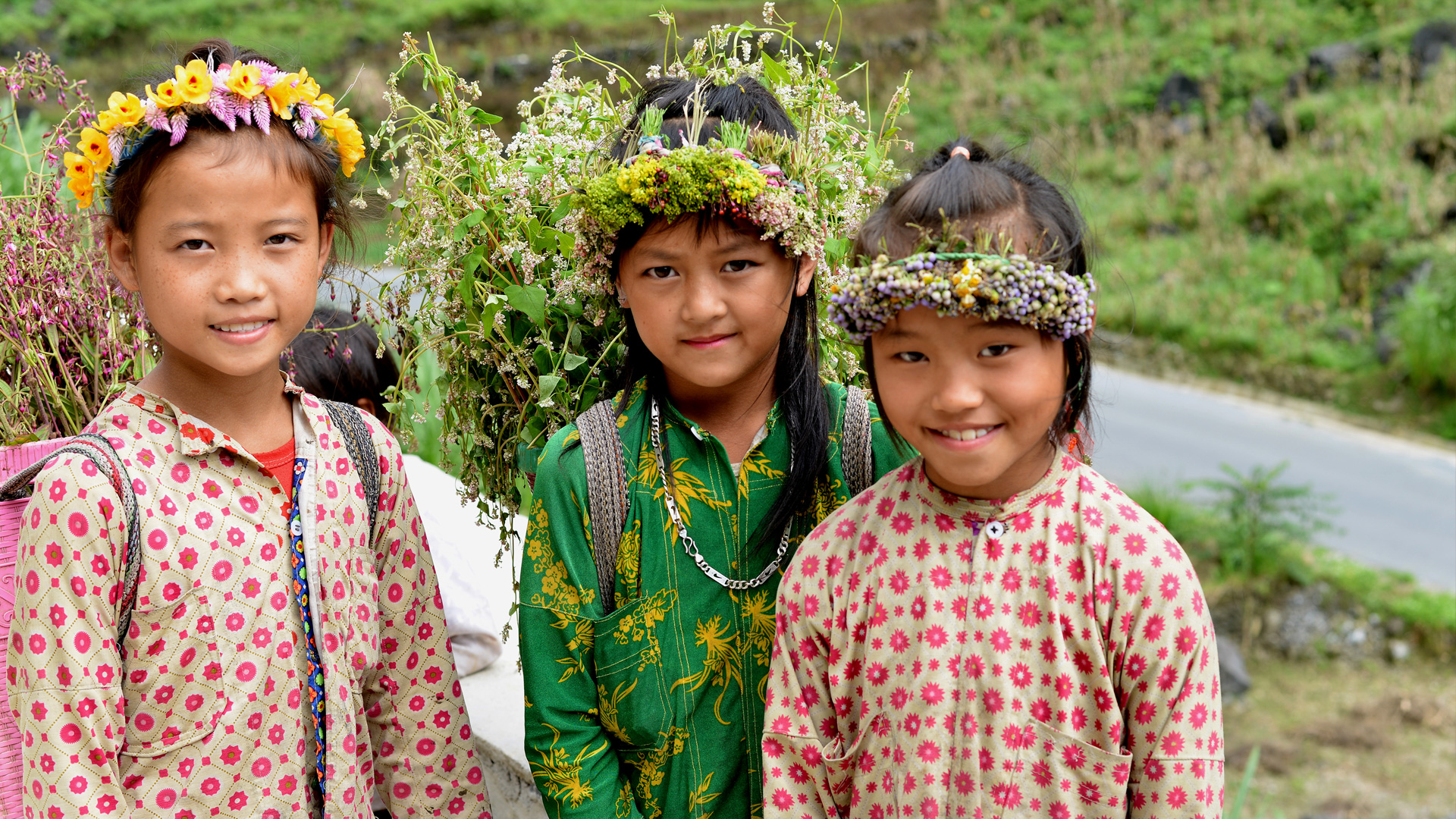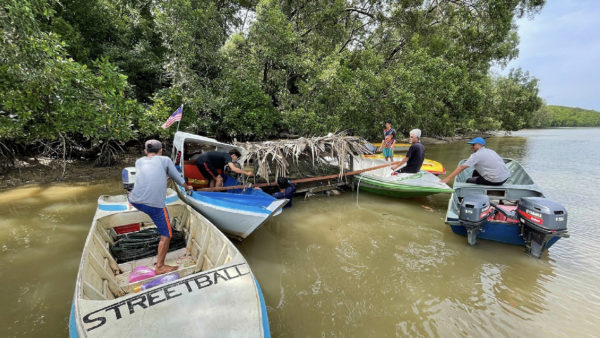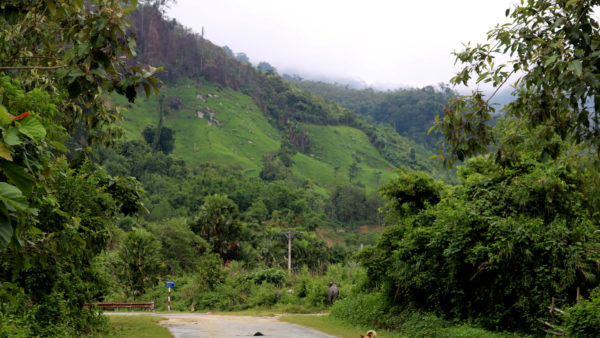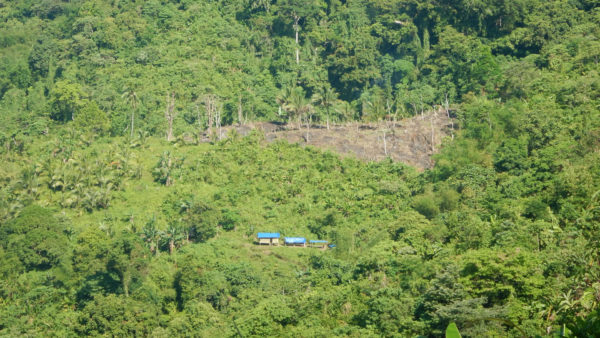Documenting ICCAs passes on traditional knowledge and history, and enables the world to see that ICCA custodians have concrete, nature-based solutions to help reach global conservation targets
First published on 11/07/2023, and last updated on 11/13/2023
By Maria Tanya Conlu, compiled from contributions of ICCA Consortium members and Indigenous community partners
Note: This article is from the recently published report “Celebrating territories of life in Southeast Asia.” The text has been edited for the ICCA Consortium website.
Throughout Southeast Asia, a lot of ground has been gained by Indigenous communities in documenting, defending and sustaining ICCAs – Territories of Life. However, as with ICCAs across the globe, there are many challenges and many threats coming from external and internal factors. Each sub-region or country is at different stages of recognition, legal or otherwise, and every community and the organizations that support them is navigating the varying socio-political contexts in which they find themselves. From the military takeover in Myanmar in the last year which obliterated any progress towards peacebuilding and forest protection by the Karen, to the solid legal basis of Indigenous Peoples’ rights in the Philippines, ICCAs throughout the region are all developing their self-strengthening processes.
The resources on which Indigenous communities’ lives and livelihoods depend on have become scarce or degraded as big companies and other outsiders encroach on their territories and harvest or extract resources unsustainably. Territories of Life, being naturally rich resources of biodiversity, are continually threatened by extractive industries, land conversion and big infrastructure. Roads and dams, as well as the conversion into large scale mono-crop plantations, have already destroyed forests and the biodiversity they contain. These unsustainable land uses have displaced Indigenous Peoples, often disrespecting their culture and beliefs and causing loss of livelihoods, cultural identity, and even lives.
Many government Protected Areas are in or overlap with ICCAs. Even when the goal is the same – conservation – these parks are sometimes just another form of violation of rights as Indigenous Peoples are often made to take a back seat or are even excluded in the management and benefit-sharing from their own lands and resources. Some Indigenous communities are recognized as the owners, but in very few instances are they actually given the right to self-governance. Despite the UNDRIP and other global and national treaties and policies, as well as many emerging studies proving the capacity of traditional knowledge to safeguard the forests, change in perspectives of government officials is slow and there is general distrust in the capacity of communities to manage resources sustainably. Some countries in the region still do not even recognize the distinct identity and culture of Indigenous Peoples, which marginalizes ICCA values and its contribution to the conservation of nature.
The Philippines has the most concrete law when it comes to Indigenous Peoples’ rights, however its implementation is far from stellar, and other land uses supersede traditional use. Most Protected Areas still exclude them from their own lands and permitting processes for their own forest resources are slow and prohibitive. Similarly, the varying political will and slow pace of recognition of customary forests by the Ministry of Forestry and Environment is a big challenge in Indonesia. Most recently, however, the government revived its commitment on the recognition of customary forests and has a plan for accelerating verification of communities’ submissions.
In Malaysia where there is lack of recognition of Native Customary Rights, the threat of extractive activities and conversion of land by external actors threatens ICCAs. Logging activity is permitted by the state authority under Malaysian Timber Certification Scheme (MTCS). Indigenous communities in Cambodia also have to deal with the constant threat of government awarding their land to Economic Land Concessions (ELC). Throughout the region, communities are contending with government and big company takeovers to convert their pristine lands and waters into tourism sites with massive “development” that goes against what they want.
Myanmar was making headways with documentation of ICCAs, advocacy at national level for the recognition of ICCAs, and the holding of national Indigenous assemblies. However, with the military coup and the constitution abolished, all laws and national plans that recognized communities and ICCAs have become null and void. ICCAs are being attacked by the Myanmar military, displacing thousands of people in the Salween Peace Park and other communities. With the military takeover, mining and logging operations have also increased, and roads threaten to carve up Indigenous territories. Environmental defenders are at risk of arrest and torture. For Myanmar, democracy must first be restored before communities can protect their biodiversity and their territories.
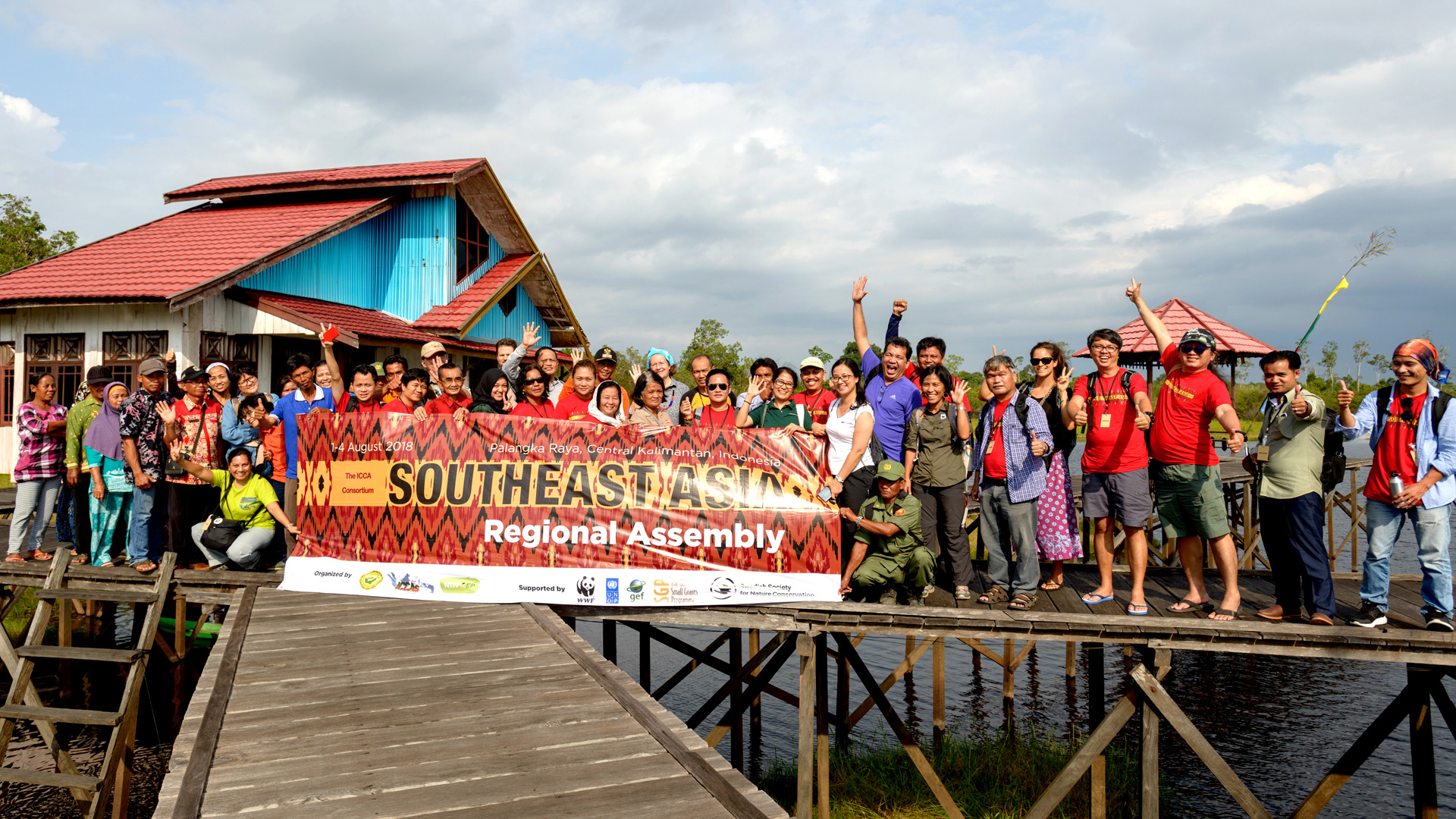
To compound these conflicts of power and interest, the changing climate is also changing the landscapes, affecting livelihoods and damaging properties. The loss of forest resources means a loss of language and traditional practices that involve these resources. Many wild foods, medicinal plants, raw materials for traditional ceremonies and other useful forest resources are lost when trees are felled, waters are polluted, or villages are inundated. The infiltration of commercial products into rural communities is also a big factor in the loss of interest in wild foods, herbal medicines and traditional crafts made of natural materials. As Indigenous communities get mainstreamed in the local economy, traditional knowledge and craftsmanship are lost as the youth’s interests and priorities shift, leaving their communities for education and job opportunities in the cities. There is no intergenerational transfer of knowledge and the elders pass on, burying the rich knowledge that has been passed on from their ancestors with them. In Malaysia and the Philippines, religious mainstreaming undermines cultural practices and beliefs and hastens their assimilation into society, further weakening traditional knowledge and structures.
Lastly, the COVID-19 pandemic has affected the entire world, including Indigenous Peoples. While many communities enforced their own traditional lockdowns, this also meant being cut off from supplies from outside the community, and being unable to trade their products. The pandemic has also delayed community advocacy agendas at regional and national levels. However, many communities also turned the situation around by taking advantage of their time without outside intervention. It was a time to revive wild foods and cultural practices and a time for re-organization and self-strengthening.
With challenges come opportunities, and creating an enabling environment for ICCAs to thrive requires concerted global, regional, national and local efforts from many players. The first thing is to recognize that Indigenous Peoples as custodians of ICCAs are central to protecting and sustaining the natural and cultural values of their territories. Establishing this means advocating for policies in support of them. There is still a lot of work that has to be done in advocating for a more inclusive and enabling policy environment that will embrace ICCAs and recognize the critical role that they play in ensuring the future of the region.
International policy recognizing ICCAs is already in the framework of the IUCN and the CBD. Continuous engagement in the CBD process is an opportunity for a stronger basis for the protection of ICCAs and the rights of Indigenous Peoples to traditional self-governance, including in areas where ICCAs and Protected Areas overlap. The next challenge for supporters of Indigenous communities is to lobby for translation into meaningful national policies that will uphold the role of Indigenous Peoples as keepers of their territories within their countries.
The existence of international and national instruments give strength to ICCAs and traditional conservation initiatives, but in parallel, the ICCA custodians themselves have to be empowered and capacitated to be able to manage, sustain and maintain control over their territories. Their institutions and practices need to be strengthened and in some cases, revived.
The Indigenous youth are key in keeping their territories and their culture alive. They are realizing that they need to learn their traditions and take interest in community affairs and the conservation of their environment, otherwise their cultural identity is lost forever. They are also the bridge that will enable their communities to cope with the fast-changing world. They have the aptitude for accessing skills, technology, markets and networks for their community’s needs and livelihoods, and are the best ambassadors for their advocacies.
On the ground, building cases for ICCAs remain relevant. Participatory mapping enables the recording and documenting of communities’ wisdom in spatial management, as well as in identifying resources, changes, and threats. Documenting and mapping ICCAs are very important not just for community management but also as evidence of the conservation value of ICCAs.
Documenting ICCAs passes on traditional knowledge and history, and enables the world to see that ICCA custodians have concrete, nature-based solutions to help reach global conservation targets.
The maintenance of databases such as the global and national ICCA registries are also crucial. Peer review systems at the regional and national fronts will strengthen the collective ownership of the data by the communities, and will facilitate their registration to the global registry.
Members and partners of the ICCA Consortium Southeast Asia are all at different stages in documenting, defending, sustaining and supporting their ICCAs. As a region, there have been useful inter-country exchanges and support for each other’s efforts, and opportunities for more collaborative initiatives in the future should be created.
With the collective clamor for Indigenous Peoples’ rights and the growing recognition of traditional knowledge, the world is starting to realize that Indigenous Peoples are, indeed, the best custodians of the last remaining forests, and effective managers of traditional lands and coasts. Appropriate support must be given to them if we want these places to keep thriving, not just for Indigenous Peoples but for all of us, for generations to come.
